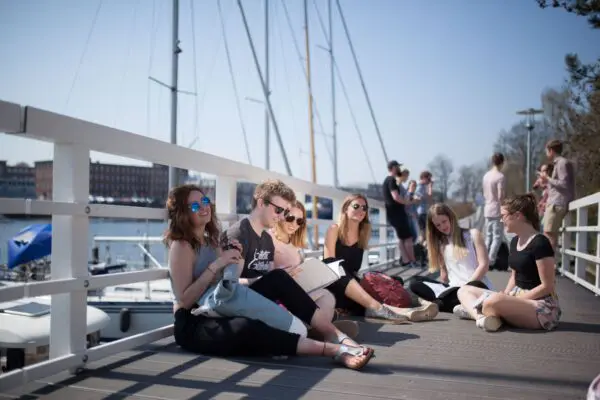
Prague, Czechia
From Conflict to Consensus: Negotiation Skills for Business and Politics
When:
03 August - 14 August 2026
Credits:
5 EC
Read more
Communication, Media and Journalism
When:
10 April - 14 April 2016
School:
Institution:
Marie Curie Alumni Association
City:
Country:
Language:
English
Credits:
4 EC
Fee:
300 EUR

Over the past decades communication and outreach has become a fundamental concern of state-of-the-art research communities. The relationship between science and society has begun to change radically and communication has become a necessity. Important decisions involving scientists' research are no longer made by the scientific community but by politicians, private companies and by the media. Moreover the decisions often involve the general public whose opinion influences the politicians and the media behavior. For these and other reasons it is important to improve the dissemination of research and to convey the value of a scientific way of thinking even to those who have nothing to do with science. Furthermore it is important to improve how scientists share results with the scientific community, in order to enhance the quality of the research and to facilitate collaborations: it is necessary to learn how to make posters effective, how to communicate aims and methodologies in scientific papers and proposals, how to get projects funded. Traditional scientific training, typically does not prepare scientists and engineers to be effective communicators outside of academia.
Attending the school students will learn how to effectively convey important research results to a public of both experts and laypeople. Students will learn how to write an abstract, how to structure effectively a poster about their research, how to write a paper. Also students will receive coaching from experienced researchers and Euraxess experts on proposal and report drafting, and on how to improve communication to policymakers. Being involved in science communication activities will allow the students to gain communication technical skills that will be useful in their wider lives and will remind the students that science is an heritage that needs to be shared as a part of our culture.
Phd students and young researchers
The school has the aim of offering overview and training of scientific communication skills in all its forms. The school will treat communication not only with an "educative aim" but also with a "scientific aim". The lecturers will therefore not only present an overview of science communication from a theoretical point of view, but also will offer practical activities on abstract/paper writing and poster editing, on proposal and report drafting, and on how to improve communication to policymakers. All the lectures will be accompained by laboratories and students will experience concrete activities: for example each student will present a poster at the beginning of the school and posters will be corrected and improved at the end applying what learned during the school; at the end of the school students will try to provide accurate but concise information about their science to the general public recording a short movie (famelab-like) which will be published into the facebook group of the school to get feedbacks.
Fee
300 EUR, Fee covers the registration to the school
When:
10 April - 14 April 2016
School:
Institution:
Marie Curie Alumni Association
Language:
English
Credits:
4 EC

Prague, Czechia
When:
03 August - 14 August 2026
Credits:
5 EC
Read more

Barcelona, Spain
When:
07 July - 11 July 2026
Credits:
0 EC
Read more

Kiel, Germany
When:
01 June - 14 June 2026
Credits:
5 EC
Read more